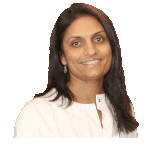Important dental tips for all ages: Treating dental problems at an early stage will save you time, money, discomfort, and your teeth!
Infants:
Things to be careful of:
It’s important to keep your child’s teeth clean and healthy, so it’s best to give them water before bed.
Pacifiers shouldn’t be used for more than three years, due to potential dental problems such as slanted teeth or a misaligned bite.
- You should schedule your child’s first dental visit after their first tooth sprouts or by the age of 1.
- After feedings and bedtime is the best time to clean your baby’s gums with a gauze. Try to do this before your child’s first tooth comes in.
- Brush your child’s teeth with a small soft-bristled toothbrush and a pea-sized amount of toothpaste after feedings and at bedtime.
- Once there are two baby teeth side by side, you can gently floss them at least once a day. Ideally before bedtime.
- A pediatrician or dentist can assist you when to stop breastfeeding; if you bottle-feed your baby, wean your child from the bottle by the age of 1.
Kids:
Things to be careful of:
Prolonged thumb-sucking (after the age of 5) may cause your child to develop speech and bite problems.
Make sure to keep a keen eye for crooked teeth or bite problems when their permanent teeth start growing in.
- Once kid’s permanent teeth start growing in, it’s a good time to schedule a dentist appointment every six months, as well as build healthy habits for their teeth.
- Your child should start brushing by the age of 6, in order to develop a beautiful, healthy smile. Help them to brush in short, up-and-down and back-and-forth strokes, as well as brushing around their gum line. Flossing is also very important, so make sure to spend time helping them with that; a floss pick can be a helpful starter.
- Preparing a nutritious, well-balanced diet is very helpful for maintaining strong, healthy teeth.
Teens:
Things to be careful of:
During their teenage years is when gum disease can start to develop. Visit your dentist to get a proper diagnosis.
For teens with braces, you should keep an eye out for canker sores or sensitive gums
- Be sure to maintain your 6 month dental appointments, even if it may seem repetitive.
- It’s very important at this age to keep brush your teeth twice a day, as well as floss once a day. It may seem boring, but keeping your permanent teeth healthy is vital for avoiding future dental problems.
- A well-balanced diet as well as drinking lots of water (filtered if possible) can help you maintain your overall health for your body.
- Talk to your dentist about using mouth guards to protect your teeth when playing sports.
Adults:
Things to be careful of:
Excessive drinking and smoking habits can lead to severe increases in your body developing oral cancer.
Hormonal changes during pregnancy can affect your teeth and gums. Continuing good dental hygiene habits can help reduce the risks of developing dental disease.
- Just like when you were younger, it’s imperative that you maintain your oral hygiene habits-brushing, flossing, and using mouthwash-and maintaining your overall health with a balanced, nutritious diet and exercise.
- Some dental problems are inevitable, whether it’s a chipped tooth or gum disease. Cosmetic dentistry can be a helpful solution for your dental needs.
Seniors:
Things to be careful of:
As you get older, you may start to develop certain dental diseases or other related issues. Visit your dentist for an evaluation or advice on what to do. Some problems that may arise are: dry mouth symptoms, cavities, root decay, tooth stains, and sensitivity of teeth.
- Using an electric toothbrush can help to reach the full extent of your mouth, especially if you have a decline in mobility.
- If you do use dentures, be sure to visit your dentist if you have discomfort or need help with realignment.
- Dental implants are very helpful and can provide a natural look and feel for missing teeth.
- Keeping your oral habits is essential for your teeth, and may even require special attention as you get older.



